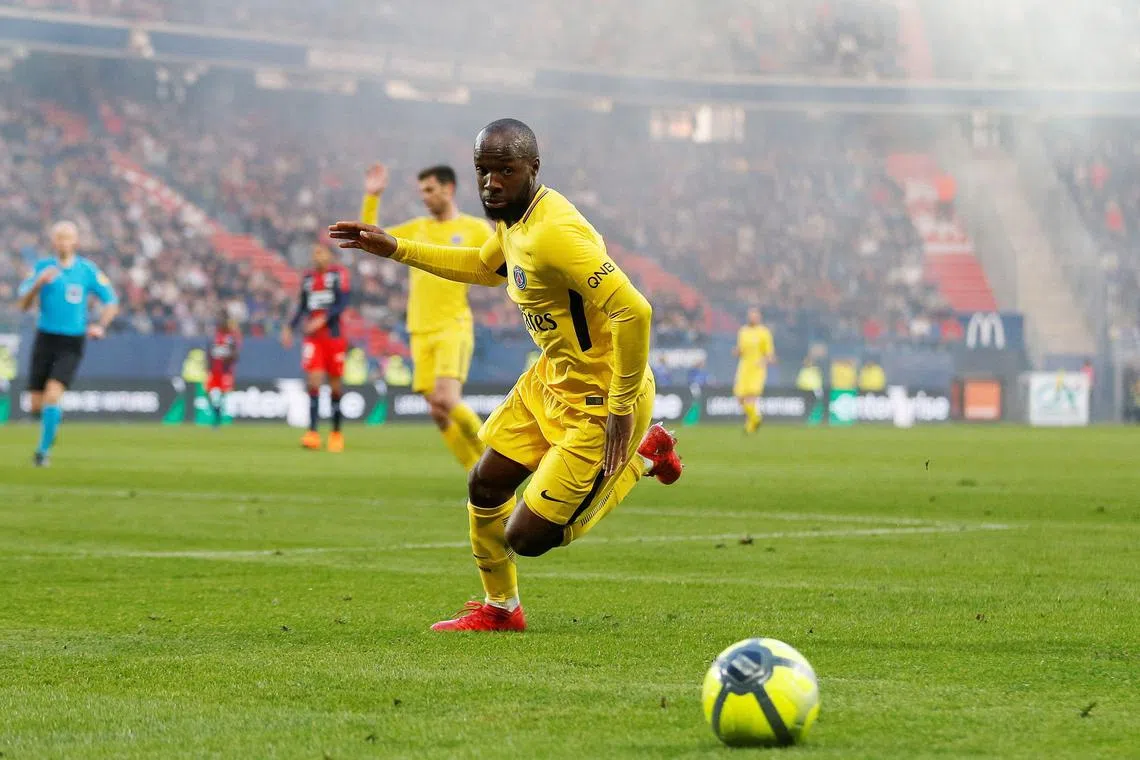European Union’s top court says some Fifa player transfer rules breach EU law
Sign up now: Get ST's newsletters delivered to your inbox

Lassana Diarra in action during a French Ligue 1 match between Caen and Paris Saint-Germain on May 19, 2018.
PHOTO: AFP
Follow topic:
PARIS – Some of Fifa’s player transfer rules go against European Union laws and free movement principles, the EU’s top court said on Oct 4 in a ruling that could open the door for players to find a new club more easily after their contract is terminated.
Fifa’s Regulations on the Status and Transfer of Players state that a player who terminates a contract before its term “without just cause” is liable to pay compensation to the club. If the player joins a new club, they will be jointly liable.
The Court of Justice of the European Union (CJEU), ruling on a high-profile case linked to former France player Lassana Diarra, stated these dispositions were unlawful, and the judgment is expected to prompt Fifa to revamp its transfer regulations.
“The rules in question are such as to impede the free movement of professional footballers wishing to develop their activity by going to work for a new club,” said the Luxembourg-based CJEU.
“Those rules impose considerable legal risks, unforeseeable and potentially very high financial risks as well as major sporting risks on those players and clubs wishing to employ them, which, taken together, are such as to impede international transfers of those players.”
In 2014, Diarra left Lokomotiv Moscow one year into a four-year deal and the club took the matter to Fifa. They argued he had breached the rules when his contract was terminated after the player decided to leave without just cause following a pay cut.
Belgian club Charleroi were keen to sign him but backed out after Fifa refused to sign the International Transfer Certificate, something which has also been deemed unlawful by the CJEU ruling on Oct 4.
In 2015, Fifa ordered Diarra to pay €10.5 million (S$15 million) in damages to Lokomotiv, prompting the former Chelsea, Arsenal and Real Madrid player to sue the world governing body and Belgian football league for damages before a local court.
The CJEU ruling could also lead to other players affected by Fifa’s regulations to also seek damages.
“All professional players have been affected by these illegal rules (in force since 2001) and can therefore now seek compensation for their losses,” Diarra’s lawyers Jean-Louis Dupont and Martin Hissel said in a statement.
“We are convinced that this ‘price to pay’ for violating EU law will – at last – force Fifa to submit to the EU rule of law and speed up the modernisation of governance.”
Dupont added that the whole transfer system will change with the court’s ruling.
“Fifa’s immunity is over, there will be a before and after in (football) governance after the EU (court) ruling,” he told Reuters.
Fifa said it was “satisfied that the legality of key principles of the transfer system have been re-confirmed in today’s ruling. The ruling only puts in question two paragraphs of two articles of the Fifa Regulations on the Status and Transfer of Players, which the national court is now invited to consider”.
International players’ union Fifpro said it welcomes these findings, adding that the ruling “will change the landscape of professional football”.
Ian Giles, the Europe, Middle East and Africa head of antitrust and competition at global law firm Norton Rose Fulbright, said the ruling could mean that “players will feel they can now break contracts and sign on with new clubs, without the selling club being able to hold them or demand significant transfer fees”.
“But over time things will have to stabilise to allow clubs to remain economically viable. Smaller clubs who rely on transfer fees for talent they have developed may well be the losers in this context,” he added. REUTERS

